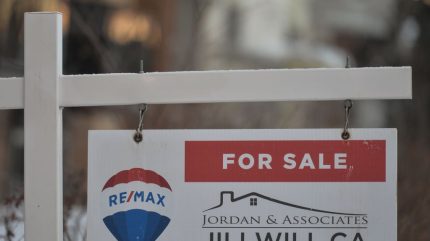
On 8 April 2022, Justin Trudeau’s government announced a two-year ban on foreign real estate investors in Canada. The government explained that this was a move to cool down a hot market after housing prices climbed by more than 20% in 2021.
Alongside the foreign buyers ban, an injection of $4bn (C$5.05bn) for municipalities to update zoning and permit systems was announced in a bid to speed up the construction of new housing. There will also be $1.5bn put towards various incentives, such as a tax-free savings account initiative for first-time buyers and updates to the first-time home buyers tax credit.
Trudeau looking for an easy win?
Essentially, Trudeau’s government is putting its weight behind helping Canadians to buy properties in Canada, but Ben Myers, president of Bullpen Research & Consulting Inc – a Canada-based real estate advisory company – is cynical about the motives behind the ban.
He explains that over the past 20 years, as housing prices in Vancouver and Toronto have soared, it became common for foreigners to take the blame. Myers highlights that this was particularly true in the case of Asian buyers, as they made up a large minority group in both the Vancouver and Toronto residential markets.
“Given that foreign buyers can’t vote and these bans are supported via the systemic racism that still exists in this country, anti-foreign buyer sentiment gained political momentum,” he adds.
The need for Trudeau to gain some political momentum has become more acute following the February 2022 freedom convoy protests, which saw Canadians protest against vaccine mandates across the country. In response, Trudeau had invoked emergency powers to move truck blockades, bar gatherings in certain locations and enlist the use of private tow trucks if needed for future blockades. This emergency act was held in place for a month following the protests.
Despite the protests mostly concerning vaccine mandates, some political experts commented that they were also a symptom of wider public negativity towards Trudeau’s government. In February 2022, a poll by the Angus Reid Institute found that no region of the country had a majority of residents that felt the federal government “cared about issues important to them”.
Myers believes that reasons behind the introduction of this ban could be more about boosting Trudeau’s popularity among voters than they are about the affordability of housing. “[The ban isn’t worthwhile], it is political posturing,” he says. “If anything, a tax is better as it works as a bit of a deterrent plus it generates income.”
Is Canada’s housing market already cooling?
The ban on foreign real estate investors follows Canada’s non-resident speculation tax, which was first introduced in the country in 2017. This initially taxed foreign nationals at 15% on purchases of residential properties. It was then increased to 20% across parts of Canada in 2022 ahead of the announcement of the ban.
The general consensus among real estate experts seems to be that this ban will have little impact on Canada’s housing price crisis.
“In my opinion governments really don’t want house prices to decline,” says Myers. “Some 70% of the country owns their home, and it is likely that this 70% is a significant portion of the voting public. I think they know this will have very little impact, but it plays well with many younger Canadian residents looking for anything that shows the government cares about house prices and growing unaffordability.”
There is some indication, however, that Canada’s residential market is cooling, but this seems to be more a result of the Bank of Canada raising its benchmark interest rate. On 13 April, the rate was raised by half a percentage point to 1%.
Alongside this, it appears that the upward trend in prices is coming to an end. The Toronto Regional Real Estate Board reported a drop in average prices in the Greater Toronto Area from $1.33m in February 2022 to $1.29m in March 2022.
Investors locked out?
So, what will the foreign buyers ban mean for existing and potential real estate investors in Canada? According to Myers, there weren’t many to begin with. “I think the number of foreign buyers purchasing strictly for investment purposes is not a big one,” he says. “[There will be] no impact on existing foreign investors; if anything, they will be less likely to sell, not knowing if they would be able to re-enter the market at a later date.”
So, foreign investors may be deterred from entering the Canadian housing market for two years, but those already sitting on considerable property portfolios are likely to stay put. It remains to be seen whether the ban will deliver some much-needed political momentum for Trudeau, or if it will simply send the wrong message to global real estate investors in the long term.



